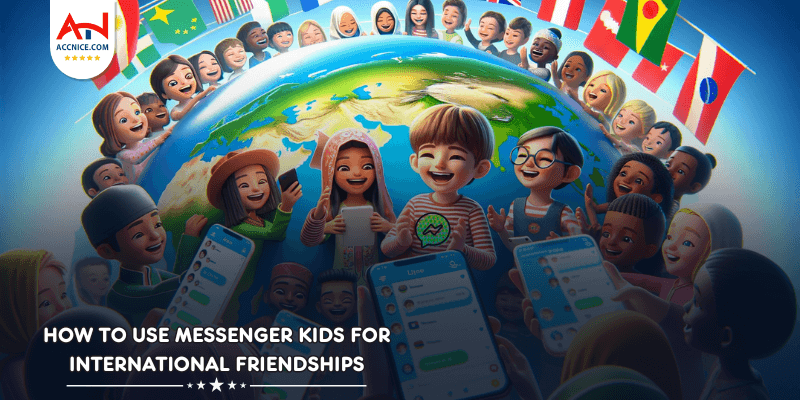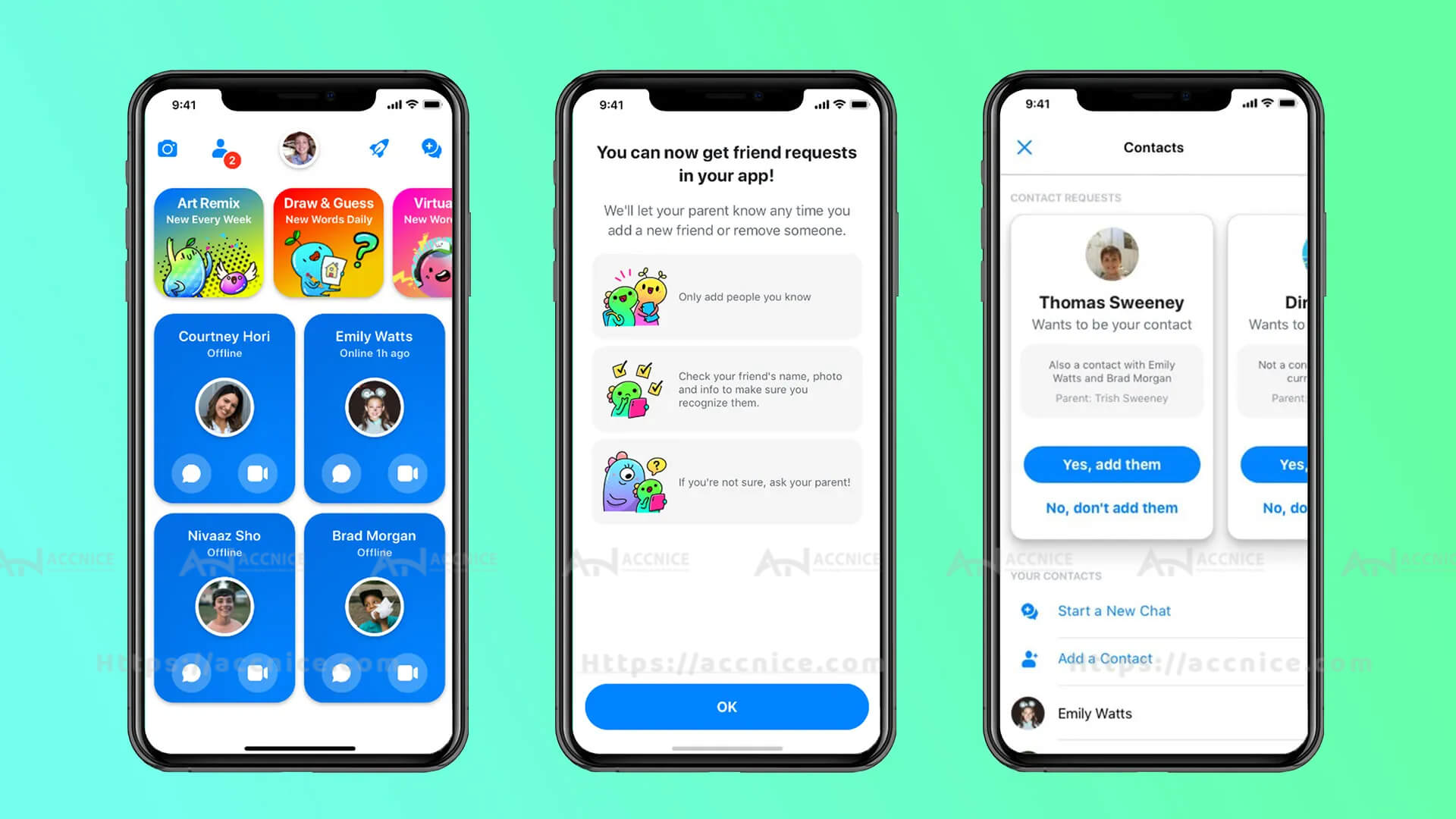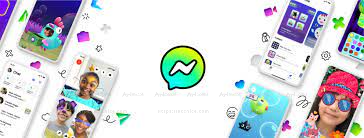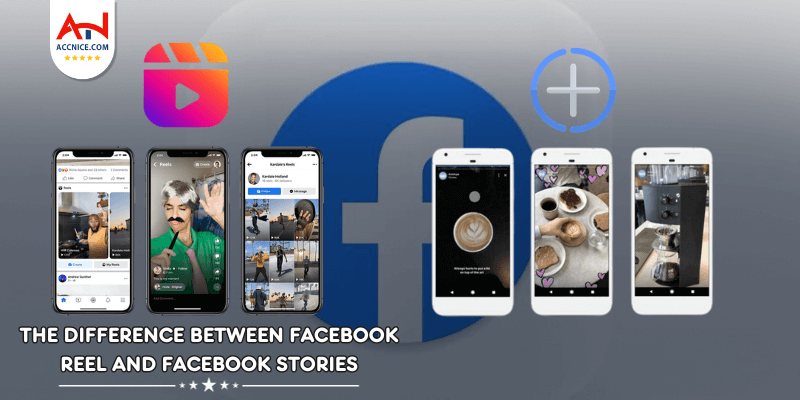
In our increasingly connected world, nurturing international friendships for children has never been more accessible. Messenger Kids, a child-friendly app created by Facebook, provides a unique platform for children to connect with friends globally. This article optimized by accnice.com will guide parents on how to use Messenger Kids to help their children build and maintain international friendships. We'll explore the app's features that make global communication safe and enjoyable for children, while providing a comprehensive understanding of the app's capabilities and benefits. How to Use Messenger Kids for International Friendships

Setting up Messenger Kids for international connections allows children to safely connect with family and friends around the world. Here's how to get started:
Download and Install the App:
Create an Account:
Understand Privacy Settings:
Managing International Contacts:
Discuss Online Safety:
Monitor and Adjust Settings:
By following these steps, you can set up Messenger Kids in a way that allows your child to safely connect with people across the globe, opening up opportunities for cultural exchange and global friendship. Remember, ongoing communication about online safety and respect for cultural differences is key to a positive international experience on the app.
Navigating language barriers in Messenger Kids can be an educational and fun experience for children. Here are some strategies and features that can help:
Picture Messaging: Visual communication transcends language barriers. Encourage your child to use the picture messaging feature to share images that can convey messages without the need for words. This can be particularly effective for simple concepts and sharing day-to-day experiences.
Emojis and Stickers: Emojis and stickers are a universal language in the digital world. They can express emotions, reactions, and basic messages effectively across language barriers. Teach your child to use these tools creatively to communicate feelings or responses.
Basic Phrases in Different Languages: It can be a fun and educational activity to learn basic phrases in the language of the person your child is communicating with. Simple greetings, thank yous, and other common phrases can be a great start.
Use of Translation Tools: While Messenger Kids itself may not have built-in translation features, you can assist your child by using external translation tools. Translate messages before they are sent, and help your child understand received messages by translating them into your native language.
Voice Messages: Sometimes, the tone of voice can convey more than text, especially when language is a barrier. Voice messages can be a more personal way to communicate, allowing for intonations and emotions to be heard.
Encourage Learning through Interaction: Use this as an opportunity for your child to learn new words and phrases in different languages. This not only helps in overcoming language barriers but also fosters an interest in learning new languages and cultures.
Cultural Awareness: Teach your child about cultural differences and sensitivities that may arise in cross-cultural communication. Understanding these nuances can be crucial when navigating language barriers.
By utilizing these features and strategies, children can effectively navigate language barriers in Messenger Kids. This not only enhances their communication skills but also broadens their cultural understanding and fosters global connections.

Messenger Kids has several safety features that are particularly important for children interacting with international peers:
Parental Controls:
Message Monitoring:
Teaching Safe Online Interaction:
Messenger Kids takes privacy and data protection seriously, which is crucial for maintaining safe international communications:
Handling of Personal Information:
Parental Management of Privacy Settings:
Ensuring Online Privacy:
In conclusion, Messenger Kids provides a safe platform for children to build international friendships. By understanding and utilizing its safety features and privacy settings, parents can ensure that their children enjoy a secure and enriching online experience. Open communication about respecting cultural differences and online privacy further enhances the safety of these international interactions.

Messenger Kids offers a plethora of creative and fun features that can enhance communication between international friends:
Filters and Stickers: These playful additions can make conversations more visually appealing and engaging. Children can use culturally themed filters and stickers to share aspects of their culture or to celebrate international festivals and holidays.
Drawing and Art Tools: The app’s drawing tools allow children to create and share their artwork. This can be a fun way to communicate ideas and feelings non-verbally, which is especially helpful when language barriers exist.
Interactive Games: The in-app games provide a common ground for friends from different parts of the world to play together. This can be a great icebreaker and a way to bond over shared interests.
Voice and Video Messages: Children can send voice and video messages, adding a personal touch to the conversation. This feature is particularly useful for practicing language skills and for conveying messages more expressively.
Photo Sharing: Sharing photos of their local environment, activities, or cultural events can be a great way for children to visually communicate their everyday life and experiences.
Messenger Kids can serve as a wonderful platform for cultural exchange:
Sharing Local Stories and Traditions: Encourage children to share stories, customs, and traditions of their own culture with their international friends. This can be done through messages, pictures, or even virtual show-and-tell sessions.
Learning About Different Cultures: Children can use the app to ask questions and learn about their friends’ cultures, languages, and daily life. This exchange can foster curiosity and appreciation for global diversity.
Language Learning: Messenger Kids can be an informal platform for children to practice new languages. Encourage your child to learn and use basic phrases in their friend’s language and vice versa.
Virtual Cultural Tours: Children can give their international friends virtual tours of their homes, schools, or neighborhoods, providing a window into their world.
Celebrating International Events: Use the app to celebrate international events and festivals by sharing how they are observed in different cultures. This can be a fun and educational way to understand and respect global festivities.
In conclusion, Messenger Kids provides a unique opportunity for children to engage in creative communication and cultural exchange with international friends. By leveraging the app's fun features and encouraging an open exchange of cultural experiences, children can enjoy a rich, enjoyable, and educational international friendship experience, enhancing their understanding of the world and its diverse cultures.

Parents play a crucial role in guiding their children to build and maintain healthy international friendships. Here are some best practices:
Encourage Respectful Communication:
Cultural Sensitivity and Awareness:
Setting Boundaries:
Promoting Healthy Friendships:
It’s important for parents to monitor and support their child’s international friendships:
Open Dialogue:
Online Safety Education:
Parental Involvement:
Cultural Exchange Encouragement:
Messenger Kids offers a unique platform for children to develop international friendships, broadening their understanding of the world. By guiding children in respectful and safe online communication, and by encouraging cultural exchange, parents can help foster enriching global connections. This guide provides insights for parents to leverage Messenger Kids as a tool for their children’s social and cultural development, enhancing their global awareness and interpersonal skills.
(Note: Always follow the how-to blog, comply with Messenger Kids' terms of service, and guide your children in maintaining respectful and safe online interactions.)




















